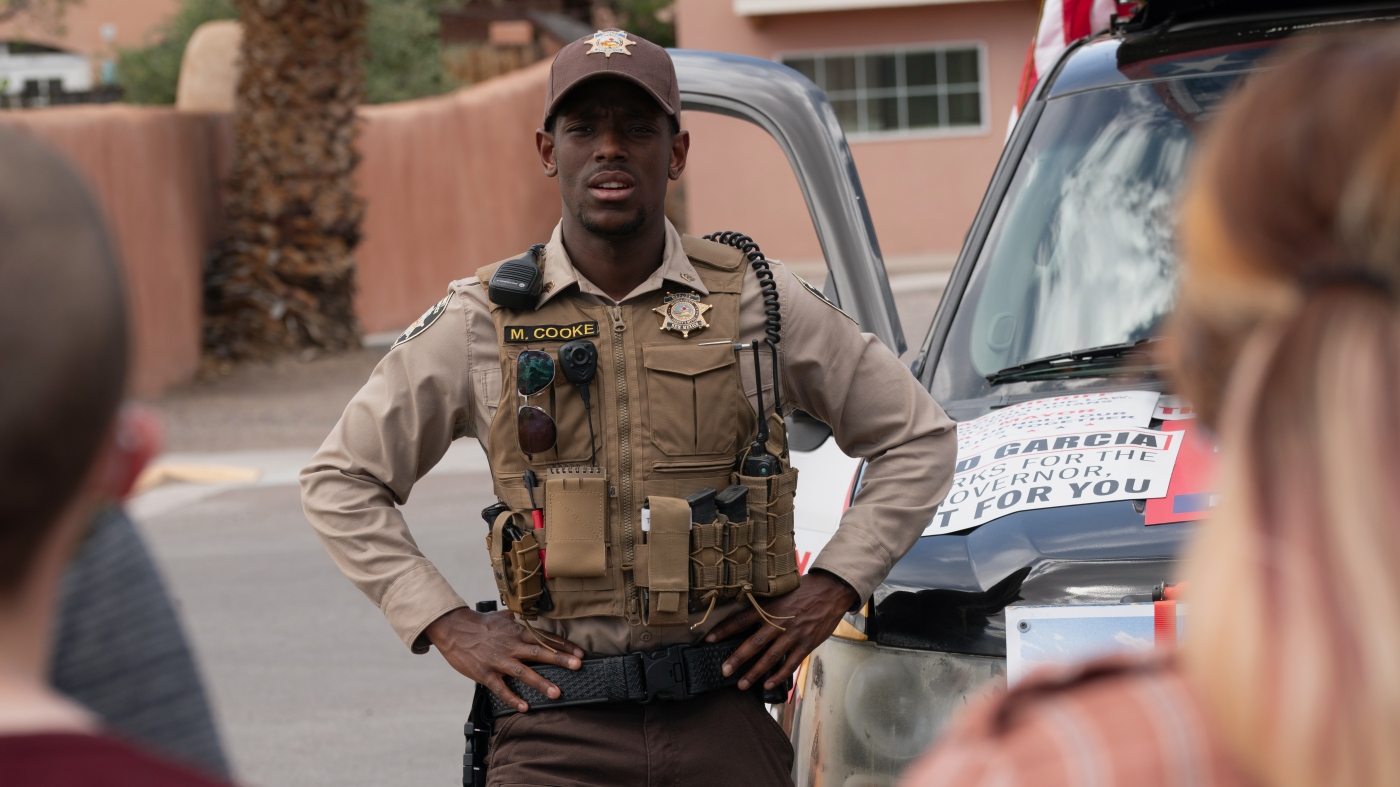
"Characters fall down COVID-19 conspiracy holes, an unmasked person is denied service in a grocery store as others clap in approval. The news out of Minneapolis of George Floyd's murder activates Eddington's predominantly white community.... Aster gets something about that ephemeral period of collective 'racial reckoning' right, as many characters take to the streets to protest police brutality."
"To put it bluntly, they are admirable yet insufferable, their postured passion only magnified by the director's choice to focus on the hormonal and angsty teens of the bunch."
"The problem with Eddington is that it exists as a cynical simulacrum. It wants to impress you by reproducing the chaos, disinformation, and combativeness of that specific moment and it does capture that feeling well but reproduction is about as deep as Aster is willing to get."
"Of course he's a police officer. It's just so laughably convenient, like a setup to a punchline. And that's how it plays, with the mostly white social justice warriors yelling things like 'The cops and the Klan.'"
Eddington depicts a rural town grappling with the implications of the COVID-19 pandemic and racial injustice following George Floyd's murder. Joaquin Phoenix and Pedro Pascal portray the sheriff and mayor, facing political and personal conflicts amid growing unrest. The film captures the anxieties and chaos of 2020's social climate, portraying characters engaged in performative activism. However, the narrative critiques itself for being a shallow reflection rather than a deep exploration of these serious issues. The portrayal of the sole Black character, a police officer, further highlights the film's simplistic approach to complex themes.
Read at www.npr.org
Unable to calculate read time
Collection
[
|
...
]